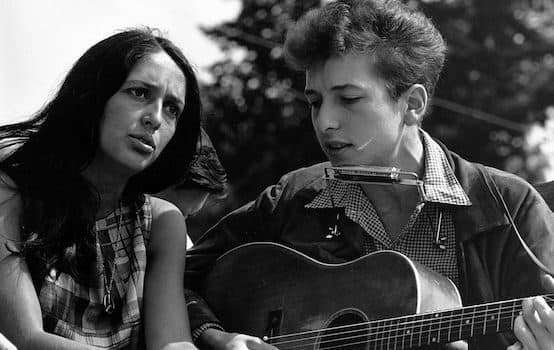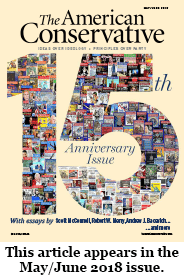
When the mellowly wry Richard Beatty asked me to help him spin platters—well, touch buttons—as a guest-host on his streaming “Geezer Radio” show, I accepted the invitation, after making it clear that I was a relative whipster and in no sense a codger, dotard, or anywhere near geezerdom.
Our theme was “Forgotten Songs of the 1960s,” so my thoughts turned immediately to two obscure singer-songwriters once hailed by hopeful blurb-writers as “the next Bob Dylan.”
Eleven-year-old Jackson C. Frank made Life magazine in 1954 for an incident that nearly took his life. The sixth-grader survived a boiler-room explosion in his suburban Buffalo elementary school that killed fifteen of his classmates and left him painfully, perpetually scarred. (He did get to meet well-wishers Elvis and Kirk Douglas.)

Upon hitting 21, Frank collected $80,000 from the insurance company and sailed to England, where he blew it all on Aston Martins, Bentleys, wine, and women. With an unusual guitar technique necessitated by his gnarled fingers and a poetically elegiac streak, Frank burst supernova-like upon England’s developing folk music scene. Paul Simon, then resident in London, produced Frank’s self-titled (and only) album, which featured an achingly morose masterpiece called “Blues Run the Game.”
The album tanked commercially. Frank repatriated. He ate. And drank. His mind wandered till it had shaken loose of any mooring. Within a shockingly brief time, the Buffalo boy with the shy disarming smile and talent for turning a melancholy lyric had become an obese homeless paranoid-schizophrenic. The days of wine and roses, not to mention dating models, were gone. The blues had run, and then won, the game.
At one point, the corpulent and crapulent Frank begged Paul Simon for a handout. According to Frank’s biographer Jim Abbott, Simon, no comrade in alms, gave him $1,500 in exchange for a promissory note and the rights to Frank’s music.
“Hello darkness, my old friend” indeed.
Frank’s hardships mounted. He had an eye shot out by a juvenile delinquent with a pellet gun. He was in and out of asylums. He grew fatter and stranger and then in 1999 he died, leaving as his legacy that one lovely album.
But there are stirrings of rebirth. “Blues Run the Game” is covered with encouraging frequency. Fellow Buffalonian Vincent Gallo, the Calvin Klein model/auteur/Republican, used Frank’s “Milk and Honey” in the soundtrack to The Brown Bunny (2003), his cult road picture with a Triple XXX climax. Buffalo boys gotta stick together.
No posthumous renaissance seems to be in the cards for my other Dylan manque, the late Carl Oglesby, the New Left visionary with a sympathetic understanding of Middle America.
Carl was a working-class kid from Ohio, a playwright who stepped away from a budding career in the military-industrial complex to serve as president of Students for a Democratic Society in 1965-66. In his seminal 1967 essay, “Vietnamese Crucible,” he linked the “American libertarian right” with “the Negro freedom movement and the student movement against Great Society-Free World imperialism.” He concluded that “the Old Right and the New Left are morally and politically coordinate.”
Oglesby’s SDS, built on “freewheeling participatory democracy,” collapsed in the bombast and bomb-blast of the Weather Underground. In his memoir Ravens in the Storm (2008), Carl wrote of his final break with the mirthless ideologues who destroyed SDS.
Talk about two paths diverging! Carl—swimming in the native radical stream, aware of the possibilities that underlie prosaic surfaces—had proposed opening channels to Rotarians, Elks, the PTA, and church groups. Privileged Weatherbrats like his erstwhile friend Bernardine Dohrn, the “Dig it!” cheerleader for the Manson Family, scoffed. When she asked where he was coming from, Oglesby replied, with a world of meaning, “Ann Arbor, Kent, Akron, Kalamazoo.”
Carl was expelled from SDS. The harridan who conducted his show trial accused him of being “trapped in our early, bourgeois stage” and lacking “a Marxist-Leninist perspective.”
What’s a red-blooded American boy to do? Pick up a baseball, a gun, a hoe, a wrench, a pen, or a guitar. Carl chose the guitar. Upon the advice of Village Voice writer Nat Hentoff, Maynard Solomon of Vanguard Records signed him. He released two albums of Beat-spirited, country-inflected folk music. Carl Oglesby (1969) and Going to Damascus (1971) are full of wry observations, Dylanesque wordplay, goofy titles (“Play Volleyball Just Like a Man”), and songs dedicated to, among others, Gene Kelly, Leslie Caron, and the Weather Underground.
The albums sank like stones half a century ago, but today they sound more like sunken treasures. Check ’em out.
Late in life, Carl saw the rerelease of his albums on CD, though when I asked him if this presaged an Oglesby revival, he laughed the laugh of the resigned and the rueful, saying, “Don’t hold your breath.”
I’m not. Blues run the game. But now and then a guy catches a break.
Bill Kauffman is the author of eleven books, among them Dispatches from the Muckdog Gazette and Ain’t my America. He also wrote the screenplay for the feature film Copperhead.
Sourse: theamericanconservative.com






